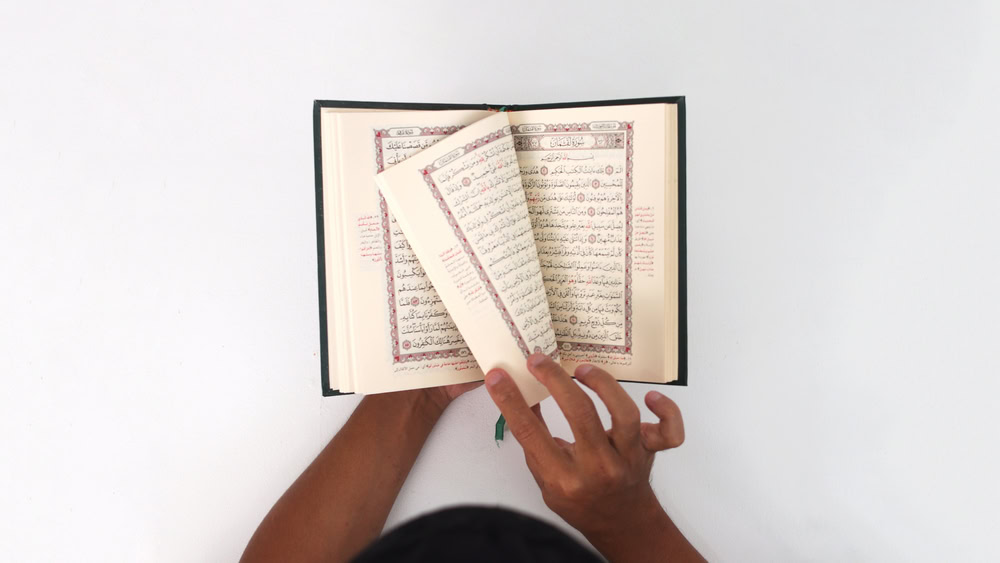Can One Understand and Reflect on the Quran without Knowing Arabic?
Answered by Shaykh Anas al-Musa
Question
Can one contemplate the Quran without knowing the Arabic language?
Answer
In the name of Allah, the Most Gracious, the Most Merciful,
All praise is due to Allah, Lord of all worlds, and peace and blessings be upon the Messenger sent as a mercy to the worlds, our Master and Prophet, Muhammad, and his Family and Companions.
Purpose of Revealing the Quran
Allah (Most High) has clarified the purpose of revealing the Quran. He (Most High) says:
“(This is) a blessed Book which We have revealed to you (O Prophet) so that they may contemplate its verses, and people of reason may be mindful.” [Quran, 38:29]
Reflecting on Allah’s verses and pondering over them leads to guidance through the Book of Allah:
“Surely this Quran guides to what is most upright.” [Quran, 17:9]
Contemplating the Quran
Contemplating the Quran involves deeply thinking about its verses to understand their meaning, discerning the objectives and aims of those verses, and grasping the meanings, wisdom, and rulings they convey. The intention is to benefit from the knowledge and faith they contain and comply with their guidance. But how can one contemplate the Quran if they do not know Arabic?
Learning Arabic
The best way to help you understand and contemplate the meanings of the Quran is to learn the Arabic language. Among the means of contemplation is understanding the Arabic language in which the Quran was revealed and knowing the meanings and connotations of its words.
The Quran was revealed in clear Arabic, and the more a person knows Arabic, the better they can understand the Quran, appreciate its eloquence, and recognize its miraculous nature that stirs hearts and astonishes minds.
Translations and Interpretations
However, if learning Arabic is difficult for you, then you have no other option but to:
- Translation of the Quran: Read the translation of the Quran in your mother tongue and ponder over those meanings. Remember that the translation of the Quran is its interpretation. When we say the translation of the Quran, we do not mean a literal translation, as that is not permissible and may lead to distortion. Rather, we mean an interpretative translation that involves understanding the verses and then conveying that understanding in another language. Therefore, you should seek a reliable interpretation of the Quran in your language and reflect on the meanings conveyed in it.
- Recite or listen to the Quran: Do not neglect the recitation if you are able to, or listen to it if you cannot recite because the Quran impacts our hearts and souls whether we understand it or not. However, reading with understanding is undoubtedly better and more impactful.
Healing and Impact
Allah (Most High) has informed us that the Quran is a healing. It is healing for those who understand its meaning and for those who do not. Allah (Most High) says:
“We send down the Quran as a healing and mercy for the believers.” [Quran, 17:82]
Allah, who created His servants and knows what is best for them, is the one who said this:
“How could He not know His Own creation? For He (alone) is the Most Subtle, All-Aware.” [Quran, 67:14]
Indeed, the impact of the Quran on those who do not understand it is a kind of miracle. I advise you, dear questioner, to seek out a reciter with a melodious voice to listen to their recitation, as there is great benefit in that for your heart and soul.
Additional Resources
Additionally, you can use recorded lessons and lectures in your language that explain the words of Allah (Most High). Try to apply the teachings of the Quran to your daily life and personal matters. Look for the values and morals that the Quran promotes and try to implement them. This is an indispensable part of contemplation.
Conclusion
In the end, the Quran carries a message for all of humanity. Contemplating this message can be possible even by relying on translations. The messages of the Quran reach those who understand its language and those who do not.
May Allah help us and you to contemplate the Quran and apply its commands and prohibitions. He is the one who grants that and is capable of it.
May Allah bless the Prophet Muhammad and give him peace, and his Family and Companions.
And Allah knows best.
[Shaykh] Anas al-Musa
Shaykh Anas al-Musa, born in Hama, Syria, in 1974, is an erudite scholar of notable repute. He graduated from the Engineering Institute in Damascus, where he specialized in General Construction, and Al-Azhar University, Faculty of Usul al-Din, where he specialized in Hadith.
He studied under prominent scholars in Damascus, including Shaykh Abdul Rahman al-Shaghouri and Shaykh Adib al-Kallas, among others. Shaykh Anas has memorized the Quran and is proficient in the ten Mutawatir recitations, having studied under Shaykh Bakri al-Tarabishi and Shaykh Mowfaq ‘Ayun. He also graduated from the Iraqi Hadith School.
He has taught numerous Islamic subjects at Shari‘a institutes in Syria and Turkey. Shaykh Anas has served as an Imam and preacher for over 15 years and is a teacher of the Quran in its various readings and narrations.
Currently, he works as a teacher at SeekersGuidance and is responsible for academic guidance there. He has completed his Master’s degree in Hadith and is now pursuing his Ph.D. in the same field. Shaykh Anas al-Musa is married and resides in Istanbul.
